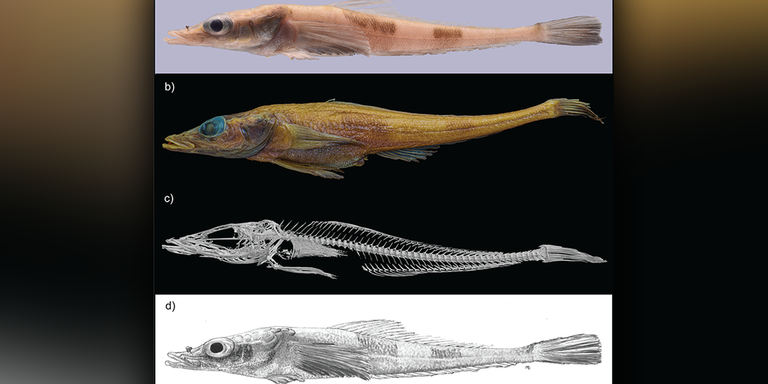A Hidden Survivor: New Antarctic Dragonfish Species Reveals 780,000 Years of Isolation
In the icy, remote waters off the western Antarctic Peninsula, scientists have uncovered a remarkable new species that has remained undetected for nearly 800,000 years. Named Akarotaxis gouldae, or the “banded dragonfish,” this elusive fish has emerged from the depths as a living relic of evolutionary persistence. The discovery began with the analysis of larval samples collected during zooplankton surveys. At first, researchers believed these tiny fish belonged to the already-known Akarotaxis nudiceps, but advanced DNA sequencing told a different story. By comparing mitochondrial DNA from museum collections at institutions like VIMS, Yale, and the Paris Museum of Natural History, scientists identified a genetic divergence that revealed A. gouldae as a distinct species entirely.
The genetic revelation prompted ichthyologists to take a closer look at decades-old adult specimens stored in archives. What they found was striking: A. gouldae had two bold vertical bands across its body, shorter snouts and jaws, larger oval eyes, and longer mouths—distinctive features overlooked until now. These subtle physical differences, coupled with deep genetic separation, confirmed that this was not simply a variation of a known species but an evolutionary branch of its own.
Using time-calibrated evolutionary models, researchers estimate that A. gouldae split from its closest relative around 780,000 years ago during a glacial period when ice sheets blanketed the Southern Ocean. It’s believed that a small population of these fish became trapped in deep trenches beneath the ice, surviving on sinking organic material delivered by glacial movements. Cut off from other populations for millennia, they evolved independently, eventually forming a separate species unable to interbreed with their ancestors.
Today, A. gouldae is thought to inhabit a narrow stretch—roughly 400 kilometers—along the western Antarctic Peninsula. Adults live in cold, dark waters at depths of 600 to 700 meters, while larvae rise closer to the surface between 200 and 960 meters. Their role in the ecosystem is still being studied, but they likely serve as a crucial food source for predators such as penguins and larger fish. However, the species is already considered vulnerable due to its small reproductive output, limited range, and the unfortunate overlap between its larval stage and the commercial krill fishing industry. Conservationists warn that until more is known about the species’ population and habitat, greater caution must be exercised in managing krill fisheries, which could unintentionally harm this newly discovered fish.
The species’ name honors the Laurence M. Gould, a longtime research and supply vessel for the U.S. Antarctic Program. Many of the samples leading to this discovery were collected aboard the ship, making it a fitting tribute to the vessel’s role in Antarctic exploration and scientific advancement.
This discovery is more than just an addition to the catalog of marine life. It’s a vivid reminder of the hidden biodiversity still tucked away in Earth’s most extreme environments. It underscores how modern genetic tools, paired with decades of careful specimen preservation, can reveal ancient evolutionary histories that were once invisible to science. It also raises urgent questions about how many such species are quietly at risk in the face of a rapidly warming planet and intensifying human activity in sensitive ecosystems like Antarctica.
Akarotaxis gouldae is not just a new name in taxonomy—it’s a survivor of deep time, a symbol of resilience in isolation, and a wake-up call to protect the fragile worlds still hidden beneath the ice.
What does the discovery of a species isolated for 780,000 years tell us about how much biodiversity we’ve yet to uncover—especially in extreme environments like Antarctica?

Congratulations @profitvotes! You have completed the following achievement on the Hive blockchain And have been rewarded with New badge(s)
Your next target is to reach 50 posts.
You can view your badges on your board and compare yourself to others in the Ranking
If you no longer want to receive notifications, reply to this comment with the word
STOPhttps://www.reddit.com/r/UpliftingNews/comments/1lhbudw/a_hidden_survivor_new_antarctic_dragonfish/
This post has been shared on Reddit by @tsnaks through the HivePosh initiative.